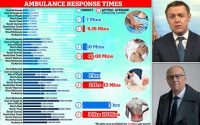Adult ADHD Linked to a Twofold Increased Risk for Dementia
TOPLINE:
Adult attention deficit hyperactivity disorder (ADHD) is associated with a more than twofold increased risk for incident dementia, a new nationwide cohort study shows. However, investigators found no increased dementia risk in adults with ADHD treated with psychostimulant medications, suggesting these medications may reduce this risk.
METHODOLOGY:
-
Investigators based their findings on the medical records of 109,218 patients (51.7% female; mean age at follow-up 57.7 years) from a nonprofit Israeli healthcare maintenance organization that provides national health care coverage to 14% of the population of Israel.
-
Participants entered the prospective birth cohort in January 2003 when they were between the ages of 51-70 and had no history of ADHD or dementia at the time of study entry.
-
Investigators followed them until February 2020, by which time 730 participants (0.7%) had been diagnosed with ADHD and 7726 (7%) with dementia.
TAKEAWAY:
-
Dementia was diagnosed in 13.2% of participants with adult ADHD and 7% of those without it.
-
After controlling for age, sex, socioeconomic status, smoking, and various health conditions, the team found those diagnosed with adult ADHD during the study had a 2.77-fold greater risk of being diagnosed with dementia (P < .001).
-
There was no increased dementia risk in participants with ADHD treated with psychostimulant medication, which the researchers noted could be because stimulants have been shown to improve cognitive impairment.
-
The link between ADHD and dementia was stronger in men than in women.
IN PRACTICE:
“The present study finding that adult ADHD is associated with a higher dementia risk is consistent with most, but not all, prior epidemiologic studies,” the investigators write. “This finding suggests that policy makers, caregivers, patients, and clinicians may wish to monitor ADHD in old age reliably.”
SOURCE:
Steven Levine, PhD, of the University of Haifa, Haifa, Israel, led the study, which was published online October 17 in JAMA Network Open. The study was partly funded by the Israeli National Insurance Institute.
LIMITATIONS:
Investigators lacked information about childhood-onset ADHD, and the rates of both adult ADHD and dementia found in the study were likely underestimated, according to investigators.
DISCLOSURES:
The authors report no relevant financial relationships.
For more Medscape Psychiatry news, join us on Facebook and X (formerly Twitter)
Source: Read Full Article


